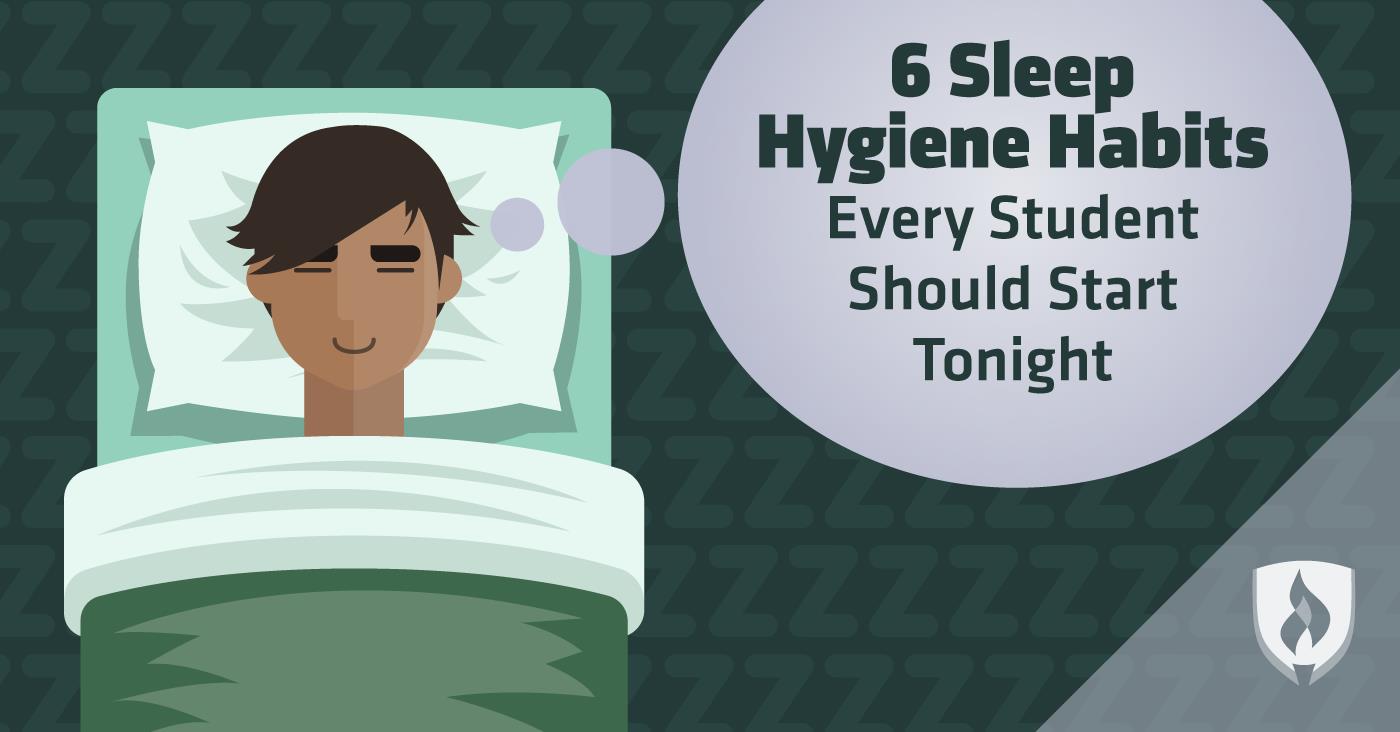
Nearly anyone who’s taken an important test has been there—the late-night, last-minute cram session prior to test day. These events can wreak havoc on your sleep schedule, and that’s a problem. Even if you’re good about avoiding late study sessions, it’s highly probable that you’re going to struggle to get the proper amount of sleep at some point in your college career.
Between homework, tests, social activities and work, sleep may seem elusive while at college. In a recently released study conducted by Jawbone, the maker of a fitness tracker called UP, thousands of college students were studied and found to sleep for fewer than seven hours on 46.2 percent of nights. The National Sleep Foundation recommends that young adults get between seven to nine hours of sleep per night, so the fact that almost half the time students aren’t getting the recommended amount of sleep poses a problem.
Failing to get a good night’s rest is a particularly big problem for those looking to learn. Lack of sleep can cause a whole host of problems, such as impaired cognitive functioning, impaired alertness and attention, serious health problems, symptoms of depression, forgetfulness, weight gain and more.
One way to combat these negative effects is to develop good sleep hygiene habits.
What is sleep hygiene?
If you haven’t bothered to look up what “hygiene” actually means, the term sleep hygiene might seem like kind of a silly phrase—some may imagine it to be an exercise in only sleeping in beds with freshly cleaned sheets. While that probably feels awesome, that’s not really what sleep hygiene is about. Sleep hygiene—like any other hygiene—is just a set of practices or conditions that can help with maintaining your health.
Just like regularly brushing your teeth and flossing are good for dental hygiene, there are regular steps you can take to improve your sleep hygiene.
6 Sleep hygiene habits every student should know about
So how can you practice healthy sleep hygiene habits regularly? We’ve put together a helpful list of tips and tricks that you can begin to employ as soon as tonight. Get ready to rest.
1. Turn your digital devices off
You’re probably tired of hearing about it, but it’s true. The blue light that comes from the screens of digital devices really does affect your sleep quality, whether you’re aware of it or not.
“Turn your digital devices off at least one hour before bed,” advises Chelsea Gardner of Edelman Health. “Using digital devices that emit blue light before bed prolongs the time it takes to fall asleep, so say an early goodnight to technology such as smartphones, tablets, flat-screen TVs, eBooks and LED monitors, among others.”
If lying in bed and scrolling through social media is part of your current go-to-bed routine, give something else a try. Read a book, do some journaling or try the old-fashioned method of counting sheep. You’ll be snoozing before you know it.
2. Make sure it’s dark
Having the right environment is important for getting good sleep. Keeping the room dark is especially important for letting your brain know that it’s time to go to sleep. Our brains developed well before humans could even control fire, let alone electricity—so it makes sense to keep your sleep environment as similar to a natural setting as possible.
“Light has an alerting effect and can shift the circadian rhythm (internal clock),” says Cathy Goldstein, MD—a neurologist at the University of Michigan’s Sleep Disorders Center. “Even if I have to use the bathroom at night or awaken with a child, I keep the lights dim.”
3. Keep it cool
“Sleep onset is accompanied by drop in internal body temperature,” explains Goldstein. “Cooler temperatures may also increase the depth of sleep. This can be facilitated by warming the extremities but sleeping in a cool environment. I wear socks to bed and use a fan.”
The typical recommendation for temperature while sleeping is between 65 and 72 degrees, according to WebMD. However, different people feel comfortable at different temperatures, so if you’re someone who likes to sleep under a big pile of quilts, you’re probably going to want the room cooler so you don’t wake up sweating in the middle of the night.
4. Watch what you eat and drink
Whether or not your body has adjusted to having alcohol, caffeine, a whole plate of spicy chicken wings or other substances before bed doesn’t mean you’re immune to the effects these substances can cause you.
“Avoid caffeine and nicotine four to six hours before bedtime,” recommends Abdul Hamid Alraiyes, MD, FCCP, Director of Interventional Pulmonology at Cancer Treatment Centers of America. “Moderate your alcohol intake. While alcohol may initially help you fall asleep faster, when your body metabolizes it during the night, it may cause you to wake up and have difficulty falling back to sleep.”
Spicy foods can also cause heartburn, which is not a pleasant way to wake up in the middle of the night. You might not even be aware of the negative effect that substances are having on you because you might not fully wake up. However, if you want to reach your deepest sleep cycles, you’re going to want to watch it before bedtime.
5. Wake up at the same time every day
“Even though it's tempting to sleep in on the weekends, we pay for this on Sunday nights,” says Goldstein. “One of the reasons is because by shifting our sleep and wake times later…, we push our internal clock later. Then come Monday morning, it's like we've flown from CA to NY over the weekend. We call this social jet lag.”
The weekend is made for staying up late and sleeping in, isn’t it? While there’s something wonderful about knowing you have the option to sleep until noon, you’re not doing yourself any favors by doing so.
As painful as it may be to start this habit, try getting up around the same time on weekends that you do during the week. This doesn’t mean you have to quickly get ready and go do something strenuous. Curl up with a blanket and watch some Saturday morning television, or enjoy a leisurely breakfast with a friend instead. In addition to keeping your sleep routine steady, you may also get a little more done on weekends.
6. Establish a relaxing bedtime routine
It shouldn’t surprise you that your brain is pretty smart. It knows when you’re starting to prepare for bedtime, and the cues you give will help your systems slowly power down.
“Reading a book, taking a warm shower or relaxing with a cup of herbal tea and your journal may help you unwind from your day and signal to your body that it’s bedtime,” says Alraiyes. “For better results, practice a similar routine—such as washing your face, changing into your pajamas and then meditating for five minutes—before getting into bed each night.”
The great thing about establishing a bedtime routine is that you can make it whatever you want it to be. Like the scent of lavender? Light a candle. Enjoy a light snack before bed? Grab a glass of milk and a piece of banana bread. Whatever it is, make it yours, and you’ll find yourself looking forward to bedtime instead of procrastinating it.
Better sleep hygiene habits make for a better life
Practicing proper sleep hygiene can lead to better life quality. Groggy and propelled by caffeine is not a recipe for success—particularly for anyone looking to take on the challenge of college coursework. Take these sleep hygiene tips to heart and evaluate what you can improve.
Sleep is important, but it isn't the only piece of the puzzle. Stress can also cause trouble for students looking to be their best, academically. Fortunately, there are a variety of activities you can practice to relieve stress and keep yourself running at peak condition. Check out our article, “7 Stress-Relieving Activities to Keep You Calm, Cool and Collected” to learn more.
RELATED ARTICLES:




